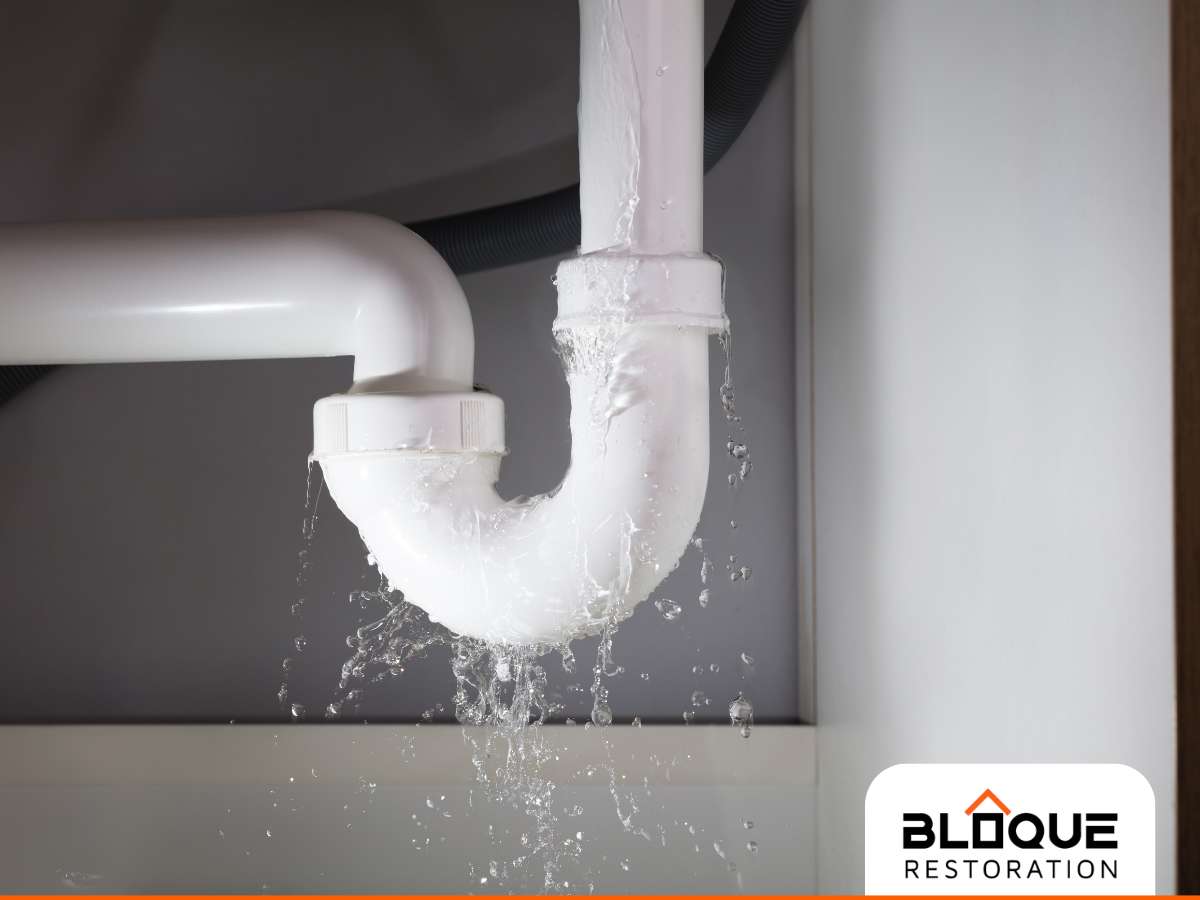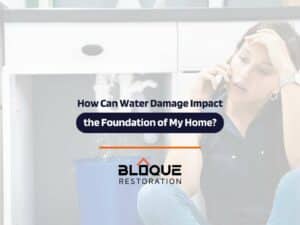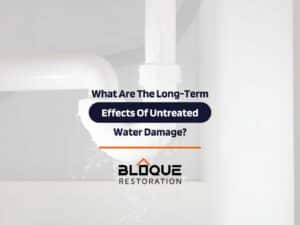What Are The Long-Term Effects Of Untreated Water Damage?
The Structural Damage & Health Risks From Prolonged Water Damage
Imagine waking up to find your home flooded due to a burst pipe or severe storm. While the immediate impact is evident, what about the long-term consequences? Water damage extends far beyond the visible dampness and soggy carpets—it can wreak havoc on your property and health if you leave it unaddressed.
In this blog post, we’ll talk about the often-overlooked long-term effects of untreated water damage. From mold growth to structural decay, we’ll uncover the hidden dangers lurking beneath the surface. So, if you’ve ever wondered about the true implications of neglecting water damage restoration, read on to learn more.

The Hidden Dangers Of Mold From Untreated Water Damage
Water damage can affect the appearance of a home, especially regarding mold growth. Unfortunately, mold growth is one of the most common consequences of water damage, so you must keep an eye on your plumbing system to avoid any water infiltration or even worse, flooding.
Mold can cause many negative effects on your routine, including health hazards and structural damage. For example, mold spores can trigger allergic reactions and respiratory problems, and this is especially problematic for those with allergies or asthma. Moreover, contact with mold can irritate sensitive areas such as the eyes, nose, and throat. This irritation can manifest as itching, redness, or soreness.
As for structural damage, mold colonies thrive in damp environments and can gradually consume organic materials such as wood, drywall, and insulation. Over time, this can lead to the weakening and decay of structural components.
As mold spreads within the structure, it can compromise the integrity of walls, ceilings, and floors. This compromise can result in structural instability and safety hazards.
Besides, mold not only feeds on organic materials but also through enzymes and acids. This process accelerates the rotting and deterioration of affected materials, potentially requiring extensive repairs.
Water damage restoration is crucial to avoid these long-lasting effects.
How Untreated Water Damage Compromises Structural Integrity
Untreated water damage poses significant risks, especially when we talk about structural integrity and safety.
When water infiltrates a structure, it saturates materials such as wood, drywall, and concrete, weakening them over time. For example, wooden beams may warp or rot, drywall may crumble, and concrete may degrade.
This compromises the structural integrity of the building, making it susceptible to collapse, especially under additional stressors like heavy rainfall or seismic activity.
Furthermore, water damage can affect a building’s foundation, which is crucial for its stability. Excessive water accumulation around or beneath the foundation can cause it to shift, sink, or crack. This results in uneven settling of the structure, leading to structural imbalances and potential collapse.
As we mentioned earlier, untreated water damage can also cause mold growth. Stagnant water within a building creates an ideal environment for mold colonies to thrive.
Additionally, water damage can compromise electrical systems, posing further safety risks. We’ll talk more about it later.
In essence, addressing water damage promptly is essential to prevent structural collapse and ensure the safety of occupants.
Electrical Risks Associated With Water Damage In Homes
Water can corrode wiring, outlets, and electrical appliances, leading to short circuits, electrical fires, and electrocution hazards if there’s no water damage restoration on time. These electrical hazards pose a significant risk to occupants and can exacerbate the risk of fire or injury.
Here’s how water damage can cause electrical damage:
- Short Circuits: When water enters electrical outlets, wiring, or appliances, it can create a pathway for electricity to flow outside of its intended circuit. This unintended flow of electricity can cause short circuits
- Corrosion: Water is a conductor of electricity, and when it comes into contact with metal components of electrical systems, it causes corrosion, leading to electrical malfunctions or failures.
- Electrical Fires: Water damage can lead to electrical fires if water comes into contact with live electrical components. When water and electricity mix, it increases the risk of sparks or arcs, which can ignite nearby flammable materials.
- Electrocution Hazards: Water is an excellent conductor of electricity, and when it comes into contact with live electrical components or wiring, it can create the risk of electrocution.
- Appliance Malfunctions: Water damage to electrical appliances can cause them to malfunction or become permanently damaged.
- Hidden Wiring Damage: Wiring within walls or ceilings may be affected without visible signs of damage as water can seep into wall cavities or ceiling spaces, where it can come into contact with electrical wiring.
Water damage restoration is crucial to avoid all these electrical hazards and guarantee safety in your home.
Pest Problems Arising From Damp Environments
Pests are drawn to damp environments for water, food, shelter, and breeding. Moist conditions provide drinking water and promote the growth of fungi and algae, serving as food sources.
Damp areas offer shelter from predators and harsh conditions, while high humidity levels support pest reproduction. Additionally, chemical cues from decaying matter attract pests to suitable habitats.
As you can guess, preventing water damage and maintaining dry conditions is crucial for controlling pest infestations and protecting your house.
The Economic Impact Of Delaying Water Damage Repairs
Water damage can create a significant financial burden due to several factors.
First, the cost of repairing the damage itself can be substantial, including expenses for water extraction, drying, and restoration of affected areas. Additionally, water damage often leads to secondary issues we already mentioned, such as mold growth, structural damage, and electrical malfunctions, further increasing repair costs.
Property insurance may cover some of these expenses, but policy limitations and deductibles can still result in out-of-pocket expenses. Moreover, untreated water damage can decrease property value, making it harder to sell or rent out the property in the future.
Why Professional Water Damage Restoration Is Essential
Water damage restoration is always the best course of action to avoid all these long-term effects.
If you’re facing water damage issues, don’t hesitate to seek professional assistance. Contact us at Bloque Water Damage Restoration today for swift and reliable restoration services. Protect your property and finances by acting quickly to address water damage.

BLOQUE RESTORATION
2846 E Glencove St Mesa, AZ 85213
Phone: 480-242-8084
Email: office@bloquerestoration.com
Website: www.bloquerestoration.com


